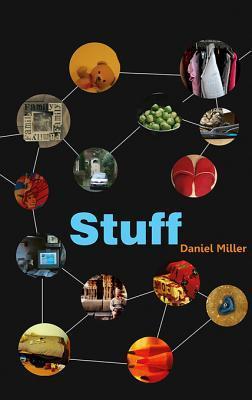The central argument of this book is a paradox: that the best way to understand, convey and appreciate our humanity is through attention to our fundamental materiality.
Daniel Miller, Stuff, pg. 15, loc. 221-222
The leitmotif of this book is a challenge to our common-sense opposition between the person and the thing, the animate and inanimate, the subject and the object.
Daniel Miller, Stuff, pg. 16, loc. 233-234
My starting point is that we too are stuff, and our use and identification with material culture provides a capacity for enhancing, just as much as for submerging, our humanity. My hope and intention is that this book will demonstrate how and why a more profound appreciation of things will lead to a more profound appreciation of persons.
Daniel Miller, Stuff, pg. 17, loc. 261-264
The first chapter on clothing is a demolition of the most common academic and popular view of stuff – the idea that objects signify or represent us and that they are principally signs or symbols that stand for persons. Instead, I argue that in many respects stuff actually creates us in the first place. More specifically, I demonstrate why clothing is not superficial.
Daniel Miller, Stuff, pg. 25, loc. 370-373
The second chapter presents theories of material culture. Starting with a theory of objects per se, it moves steadily upwards to the more rarefied theory of objectification and thence to a plane of transcendence where we gain a perspective from which we can no longer distinguish subjects from objects. It then examines the consequences of our various beliefs about the properties of materiality itself.
Daniel Miller, Stuff, pg. 25, loc. 373-377
The third chapter takes these neat and clean abstract theories and drags them back down to the messy world of application in its consideration of our relationship with our homes and houses. It literally domesticates such theories through examining the process of ‘accommodating’, and reveals how such theories, when applied to specifics, have to incorporate wider factors such as the impact of governments, the history of styles, international migration, and the power and agency that lies in the houses themselves.
Daniel Miller, Stuff, pg. 25, loc. 377-381
The fourth chapter examines the ambiguous materiality of media and communication. Stuff is not necessarily a thing we can hold or touch. This chapter also takes responsibility for issues not previously addressed, but which emerge in applied anthropology. What can and should we do with the knowledge and understanding gained by material culture studies, when it comes to the welfare of populations? How can we hope to improve their conditions and respect their aspirations while considering the negative impact of their desires?
Daniel Miller, Stuff, pg. 25, loc. 382-387
Finally, in the fifth chapter, we consider stuff as the matter of life and death; that which brings us into the world and that which helps us part from the world. In this final chapter I take what was introduced theoretically as the way objects construct subjects, and show how this is true for the everyday understanding of what it means to be human. Notes
Daniel Miller, Stuff, pg. 26, loc. 387-391

